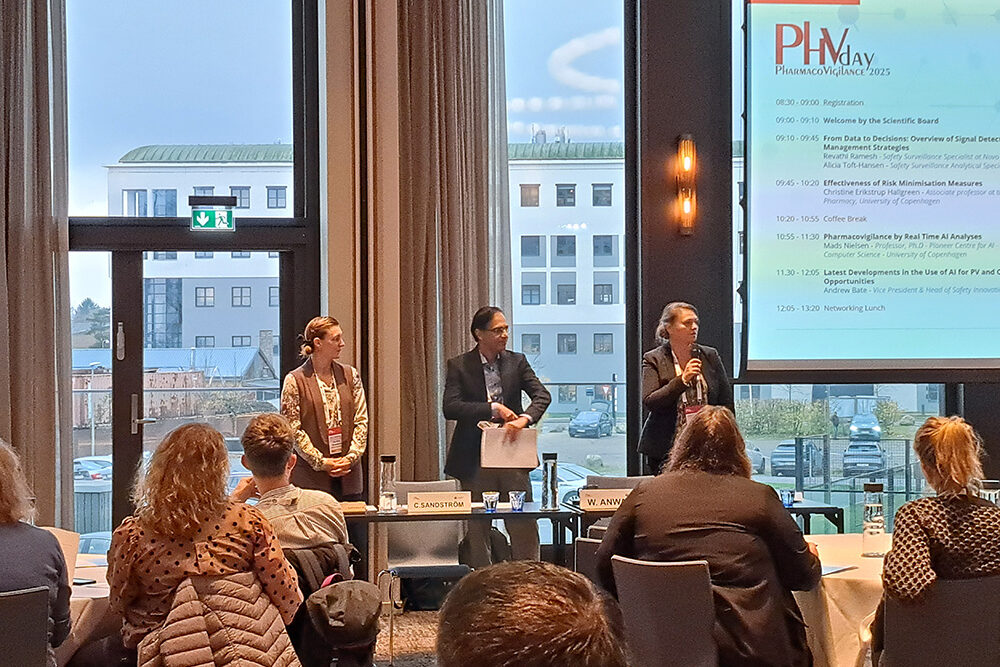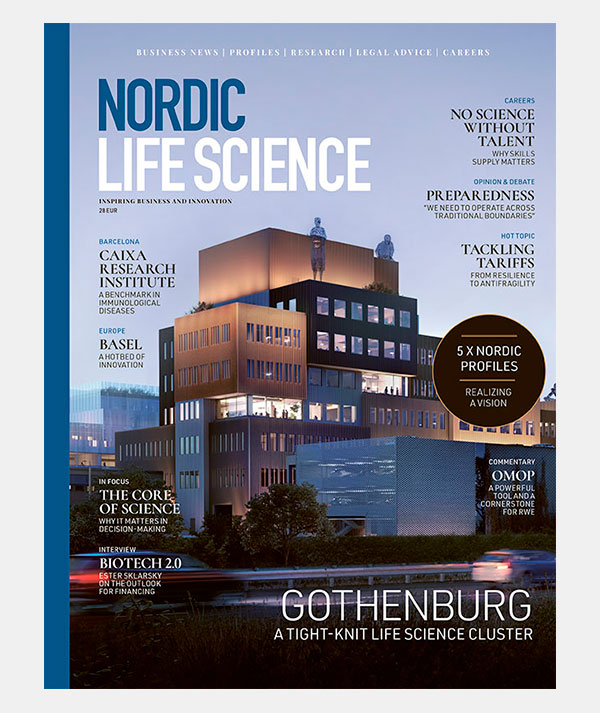US market tariffs: Impact on the life science industry

At a White House press event on Wednesday April 2, President Trump advanced the next stage of his economic plan by unveiling baseline tariffs of 10% on the vast majority of goods imported to the US. After several years of increasing export figures, Sweden’s pharmaceutical exports now risk being severely affected by the Trump administration’s tariffs, warns the industry association SwedenBIO.
Pharmaceutical companies has not been subject to reciprocal tariffs (yet) but the Trump administration is considering launching a so-called 232 investigation into pharmaceuticals, among other industries, which could lead to import duties under the Trade Expansion Act.
Update: April 8
President Trump on April 8 also said the U.S. will soon announce a “major” tariff on pharmaceutical imports. Speaking to an event at the National Republican Congressional Committee, Trump said the tariff will incentivize drug companies to move their operations to the U.S, reports Reuters.
Trump said the tariff will incentivize drug companies to move their operations to the U.S.
SwedenBIO comments on the tariffs
In 2024, Sweden exported pharmaceutical products worth SEK 150 billion, of which 16 percent went to the U.S. Trump’s tariffs on the EU and the rest of the world could have significant consequences for this export, according to industry representatives, states SwedenBIO.
The industry now faces major disruptions that will drive up prices and may even lead to shortages of certain medicines.
“The production of pharmaceutical products is complex and relies on well-functioning global supply chains. The industry now faces major disruptions that will drive up prices and may even lead to shortages of certain medicines,” says Jessica Martinsson, CEO of SwedenBIO
The problem remains and must be addressed
Commenting on the announcement April 2 that Trump plans separate tariffs for the pharmaceutical industry later, SwedenBIO states that this temporary relief is welcome, as time is of the essence, but the problem remains and must be addressed by Sweden and the EU collectively. In the long run, the EU’s life science industry will likely need to reduce its dependence on the U.S. to mitigate the impact of extraordinary events like these.
“We are being thrown into a chaotic situation reminiscent of the COVID pandemic, which exposed vulnerabilities in the supply of medicines and medical technology,” says Martinsson.

The changing US regulatory environment: Amid Chaos, Signs of Opportunity
Notwithstanding political ‘hiccups,’ the US will remain the most favored market for Nordic life science companies, say experts.
The announced tariffs apply to medical devices
The exemption presented on April 2, however, does not cover all segments of the life science industry. For example, the proposed tariffs will still apply to medical technology products.
“Ultimately, these tariffs will also hurt the U.S. and American patients. Production costs will increase even for American pharmaceutical companies, as the tariffs will disrupt supply chains for critical raw materials, packaging, and consumables needed to manufacture medicines,” says Martinsson.
Medtech company Senzime comments on US market tariffs
Senzime is headquartered in Uppsala, Sweden and has direct sales offices in US and Germany. In addition, the company is present in 30+ additional countries through distributors and partners. Senzime is listed on the Nasdaq Stockholm Main Market, with cross-trading on the New York OTCQX market.
“We have different options on the table to mitigate the effects of the tariffs. One is utilizing our new US headquarters in St Louis for local market production. We also have a strong local supply chain that is not imposed to tariffs by this US Presidential order. And obviously, we have already built significant inventory in the US in anticipation of the announced tariffs,” stated Philip Siberg, CEO of Senzime in a press release.
At this time, we as all else have no other insights on what further actions or exclusions may be implemented related to the new US tariffs.
“Many of our US industry peers are dependent on sourcing products from Asian markets subject to significantly higher tariffs than from EU countries. As a result, we will closely monitor industry peers and local US price adjustments. At this time, we as all else have no other insights on what further actions or exclusions may be implemented related to the new US tariffs. The April 2 presidential order appears to have excluded tariffs on pharmaceutical products. There are strong industry initiatives driving demands for excluded tariffs on medical devices as well,” he adds.
Updated: April 10, 2025, 06:42 am
Published: April 3, 2025












